List of Romantic composers
 From Wikipedia the free encyclopedia
From Wikipedia the free encyclopedia
| Lists of classical composers by era and century | ||||||||||||||||||||
|---|---|---|---|---|---|---|---|---|---|---|---|---|---|---|---|---|---|---|---|---|
|
The Romantic era of Western Classical music spanned the 19th century to the early 20th century, encompassing a variety of musical styles and techniques. Part of the broader Romanticism movement of Europe, Ludwig van Beethoven, Gioachino Rossini and Franz Schubert are often seen as the dominant transitional figures composers from the preceding Classical era. Many composers began to channel nationalistic themes, such as Mikhail Glinka, The Five and Belyayev circle in Russia; Frédéric Chopin in Poland; Carl Maria von Weber and Heinrich Marschner in Germany; Edvard Grieg in Norway; Jean Sibelius in Finland; Giuseppe Verdi in Italy; Carl Nielsen in Denmark; Pablo de Sarasate in Spain; Ralph Vaughan Williams and Edward Elgar in England; Mykola Lysenko in Ukraine; and Bedřich Smetana and Antonín Dvořák in what is now the Czech Republic.
A European-wide debate took place, particularly in Germany, on what the ideal course of music was, following Beethoven's death. The New German School—primarily Franz Liszt and Richard Wagner—promoted progressive ideas, in opposition to more conservative composers such as Felix Mendelssohn and Robert Schumann.
Note that this list is purely chronological, and includes a substantial number of composers, especially those born after 1860, whose works cannot be conveniently classified as "Romantic", or those whose early compositions did begin in the Romantic style but later developed beyond it in the 20th century.
Late Classical/Proto-Romantic (born 1770–1799)
[edit]| Name | Date born | Date died | Nationality | Comments |
|---|---|---|---|---|
| Ludwig van Beethoven | 1770 | 1827 | German | 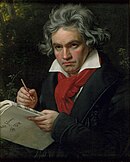 |
| Ferdinando Carulli | 1770 | 1841 | Italian |  |
| Édouard Du Puy | 1770 | 1822 | Swiss |  |
| Peter Hänsel | 1770 | 1831 | German-Austrian |  |
| James Hewitt | 1770 | 1827 | American | composer, conductor and music publisher |
| Anton Reicha | 1770 | 1836 | Czech-French | 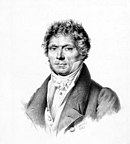 |
| Christian Heinrich Rinck | 1770 | 1846 | German |  |
| Jan August Vitásek | 1770 | 1839 | Bohemian | composer |
| Friedrich Witt | 1770 | 1836 | German | composer and cellist |
| Johann Baptist Cramer | 1771 | 1858 | English |  |
| Ferdinando Paer | 1771 | 1839 | Italian |  |
| Prince Louis Ferdinand of Prussia | 1772 | 1806 | German |  |
| Maria Frances Parke | 1772 | 1822 | English | composer, pianist and soprano |
| François-Louis Perne | 1772 | 1832 | French | composer and musicographer |
| Josef Triebensee | 1772 | 1846 | Bohemian | composer and oboist |
| Johann Wilhelm Wilms | 1772 | 1847 | Dutch-German | composer, best known for writing Wien Neêrlands Bloed, which served as the Dutch national anthem from 1815 to 1932 |
| Sophie Bawr | 1773 | 1860 | French | composer, writer and playwright |
| Pietro Generali | 1773 | 1832 | Italian | composer of operas and vocal music |
| Wenzel Thomas Matiegka | 1773 | 1830 | Czech | composer |
| Bartolomeo Bortolazzi | 1773 | 1820 | Italian | mandolin and guitar virtuoso and composer |
| Pierre Rode | 1774 | 1830 | French | 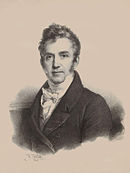 |
| Gaspare Spontini | 1774 | 1851 | Italian |  |
| Václav Tomášek | 1774 | 1850 | Czech |  |
| Christoph Ernst Friedrich Weyse | 1774 | 1842 | Danish |  |
| Johann Anton André | 1775 | 1842 | German |  |
| François-Adrien Boieldieu | 1775 | 1834 | French | 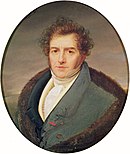 |
| João Domingos Bomtempo | 1775 | 1842 | Portuguese | 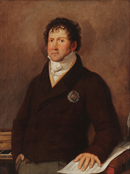 |
| Bernhard Crusell | 1775 | 1838 | Finnish | 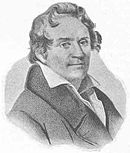 |
| Sophia Dussek | 1775 | 1831 | Scottish | composer of Italian descent, singer, pianist and harpist |
| François de Fossa | 1775 | 1849 | French | composer and guitarist |
| Ernst Theodor Amadeus Hoffmann | 1776 | 1822 | German | composer, author of fantasy and horror, jurist, music critic, draftsman and caricaturist |
| Joseph Küffner | 1776 | 1856 | German | composer and musician |
| Philipp Jakob Riotte | 1776 | 1856 | German | composer |
| Ignaz von Seyfried | 1776 | 1841 | Austrian | composer, musician and conductor |
| Ludwig Berger | 1777 | 1839 | German | composer, pianist and piano teacher |
| Pauline Duchambge | 1778 | 1858 | French | composer and pianist |
| Johann Nepomuk Hummel | 1778 | 1837 | Austrian |  |
| Sigismund von Neukomm | 1778 | 1858 | Austrian | composer and pianist |
| Fernando Sor | 1778 | 1839 | Spanish | 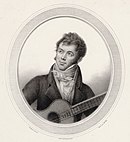 |
| Rochus Dedler | 1779 | 1822 | German | composer |
| William Knyvett | 1779 | 1856 | British | composer and singer |
| Louise Reichardt | 1779 | 1826 | German | composer and songwriter |
| Luigi Antonio Calegari | 1780 | 1849 | Italian | opera composer |
| Conradin Kreutzer | 1780 | 1849 | German | composer and conductor |
| Louis François Dauprat | 1781 | 1868 | French | composer, horn player and music professor at the Conservatoire de Paris |
| Anton Diabelli | 1781 | 1858 | Austrian |  |
| Mauro Giuliani | 1781 | 1828 | Italian | 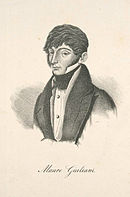 |
| Anthony Heinrich | 1781 | 1861 | American | composer |
| Sophie Lebrun | 1781 | 1863 | German | composer and pianist |
| François-Joseph Naderman | 1781 | 1835 | French |  |
| Daniel Auber | 1782 | 1871 | French | opera composer, noted for La muette de Portici |
| Carlo Coccia | 1782 | 1873 | Italian | opera composer |
| John Field | 1782 | 1837 | Irish | 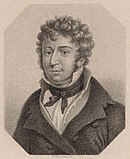 |
| Niccolò Paganini | 1782 | 1840 | Italian |  |
| Charlotta Seuerling | 1782 | 1828 | Swedish | composer, concert singer, harpsichordist and poet |
| Friedrich Dotzauer | 1783 | 1860 | German | composer and cellist |
| Teresa Belloc-Giorgi | 1784 | 1855 | Italian | composer and contralto |
| Martin-Joseph Mengal | 1784 | 1851 | Belgian | composer and instructor |
| Francesco Morlacchi | 1784 | 1841 | Italian | composer |
| George Onslow | 1784 | 1853 | Anglo-French |  |
| Ferdinand Ries | 1784 | 1838 | German |  |
| Louis Spohr | 1784 | 1859 | German | 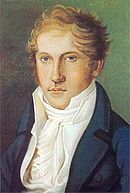 |
| Bettina von Arnim | 1785 | 1859 | German | composer, writer and novelist |
| Marie Bigot | 1785 | 1820 | French | composer and piano teacher |
| Alexandre Pierre François Boëly | 1785 | 1858 | French | composer, organist and pianist |
| Isabella Colbran | 1785 | 1845 | Spanish | composer and opera singer |
| Catherina Cibbini-Kozeluch | 1785 | 1858 | Austrian | composer of Bohemian ancestry and pianist |
| Friedrich Kalkbrenner | 1785 | 1849 | German | 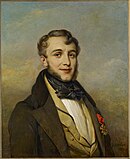 |
| Karol Kurpiński | 1785 | 1857 | Polish | composer, conductor and pedagogue |
| Henry Bishop | 1786 | 1855 | English | composer |
| Friedrich Kuhlau | 1786 | 1832 | German-Danish | 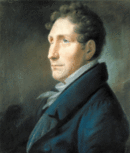 |
| Pietro Raimondi | 1786 | 1853 | Italian | composer |
| Friedrich Schneider | 1786 | 1853 | German | 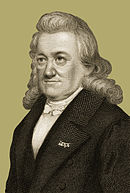 |
| Carl Maria von Weber | 1786 | 1826 | German |  |
| Alexander Alyabyev | 1787 | 1851 | Russian | composer, conductor and pianist |
| Franz Xaver Gruber | 1787 | 1863 | Austrian | school teacher, church organist and composer, best known for his Christmas carol, Silent Night |
| Michele Carafa | 1787 | 1872 | Italian | opera composer |
| Johann Peter Pixis | 1788 | 1874 | German | composer and pianist |
| Simon Sechter | 1788 | 1867 | Austrian | prolific composer, renowned music theorist, teacher, organist and conductor |
| Elena Asachi | 1789 | 1877 | Romanian | composer of Austrian birth, pianist and singer |
| Nicolas-Charles Bochsa | 1789 | 1856 | French | composer and musician |
| Friedrich Ernst Fesca | 1789 | 1826 | German | 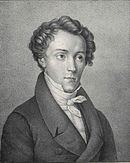 |
| Maria Szymanowska | 1789 | 1831 | Polish | composer and virtuoso pianist |
| Harriet Browne | 1790 | 1858 | English | composer and writer |
| Isaac Nathan | 1790 | 1864 | English | composer, musicologist, journalist and self-publicist known as "the father of Australian music" |
| Carl Czerny | 1791 | 1857 | Austrian | 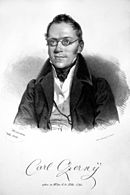 |
| Ferdinand Hérold | 1791 | 1833 | French |  |
| Giacomo Meyerbeer | 1791 | 1864 | German |  |
| Franz Xaver Wolfgang Mozart | 1791 | 1844 | Austrian |  |
| Carlo Evasio Soliva | 1791 | 1853 | Swiss-Italian | composer |
| Jan Václav Voříšek | 1791 | 1825 | Czech | composer, pianist and organist |
| Francis Johnson | 1792 | 1844 | American | composer, bugler and violinist |
| Gioachino Rossini | 1792 | 1868 | Italian |  |
| Hedda Wrangel | 1792 | 1833 | Swedish | composer |
| Cipriani Potter | 1792 | 1871 | English | composer, teacher and pianist |
| Gertrude van den Bergh | 1793 | 1840 | Dutch | composer and pianist |
| Bernhard Klein | 1793 | 1832 | German | composer |
| Caroline Ridderstolpe | 1793 | 1878 | Swedish | composer and singer |
| Princess Amalie of Saxony | 1794 | 1870 | German | composer |
| Ignaz Moscheles | 1794 | 1870 | Czech |  |
| Heinrich Marschner | 1795 | 1861 | German |  |
| Saverio Mercadante | 1795 | 1870 | Italian |  |
| Nikolaos Mantzaros | 1795 | 1872 | Italian-Greek | composer |
| Helene Liebmann | 1795 | 1835 | German | composer and pianist |
| Franz Berwald | 1796 | 1868 | Swedish | composer, little known in his lifetime, but his works, including his four symphonies are better known today |
| Carl Loewe | 1796 | 1869 | German | 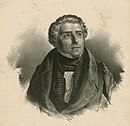 |
| Mathilda d'Orozco | 1796 | 1863 | Swedish | composer, noble, salonist, poet, writer, singer, amateur actress and harpsichordist |
| Giovanni Pacini | 1796 | 1867 | Italian | composer |
| Emilie Zumsteeg | 1796 | 1857 | German | composer, pianist, songwriter and choir conductor |
| Luigi Castellacci | 1797 | 1845 | Italian | virtuoso on the mandolin and guitar, instrumental composer and author of popular French romances with guitar and piano accompaniments |
| Gaetano Donizetti | 1797 | 1848 | Italian |  |
| Franz Schubert | 1797 | 1828 | Austrian |  |
| Annette von Droste-Hülshoff | 1797 | 1848 | German | composer and writer |
| Antonio Rolla | 1798 | 1837 | Italian | composer and violin and viola virtuoso |
| Olivia Buckley | 1799 | 1847 | English | composer, harpist and organist |
| Marie von Stedingk | 1799 | 1868 | Swedish | composer and courtier |
| Fromental Halévy | 1799 | 1862 | French |  |
| Oscar I of Sweden | 1799 | 1859 | Swedish | 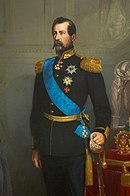 |
| Alexey Verstovsky | 1799 | 1862 | Russian |  |
Repertoire key: B=In Classical Net's basic Timeline of Major Composers 1600–present[1]
Early Romantic (born 1800–1819)
[edit]| Name | Date born | Date died | Nationality | Comments |
|---|---|---|---|---|
| Jan Kalivoda | 1801 | 1866 | Czech | 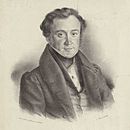 |
| Vincenzo Bellini | 1801 | 1835 | Italian | 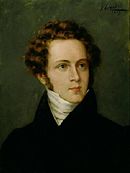 |
| Tomasz Padura | 1801 | 1871 | Ukrainian-Polish | 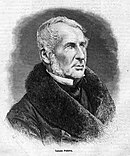 |
| Charles Auguste de Bériot | 1802 | 1870 | Belgian |  |
| Jean-Baptiste Duvernoy | 1802 | 1880 | French | composer and pianist |
| Amédée Méreaux | 1802 | 1874 | French | 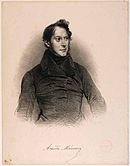 |
| Bernhard Molique | 1802 | 1869 | German | composer and violinist |
| Cesare Pugni | 1802 | 1870 | Italian | 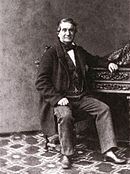 |
| José Zapiola Cortés | 1802 | 1885 | Chilean |  |
| Eliza Flower | 1803 | 1846 | English | composer |
| Friedrich Theodor Fröhlich | 1803 | 1836 | Swiss |  |
| Adolphe Adam | 1803 | 1856 | French | 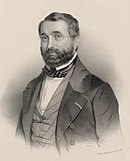 |
| Hector Berlioz | 1803 | 1869 | French |  |
| Isidora Zegers | 1803 | 1869 | Spanish-Chilean |  |
| Henri Herz | 1803 | 1888 | Austrian | composer and pianist |
| Franz Lachner | 1803 | 1890 | German | 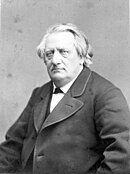 |
| Louise Farrenc | 1804 | 1875 | French | composer of three symphonies and many chamber works including the earliest known sextet for piano and wind quintet (1852) |
| Mikhail Glinka | 1804 | 1857 | Russian |  |
| Johann Strauss I | 1804 | 1849 | Austrian | 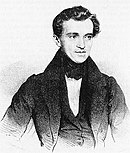 |
| Fanny Mendelssohn | 1805 | 1847 | German | composer and pianist, sister of Felix Mendelssohn, mainly known for her vocal compositions and chamber music |
| Leopold von Zenetti | 1805 | 1892 | Austrian | composer, mainly known for being one of Anton Bruckner's masters |
| Napoléon Coste | 1805 | 1883 | French | virtuoso guitarist, teacher and composer |
| Juan Crisóstomo Arriaga | 1806 | 1826 | Spanish | composer who died at nineteen and by which time he had already been nicknamed the "Spanish Mozart" for his Symphony in D and three string quartets |
| Johann Kaspar Mertz | 1806 | 1856 | Hungarian | composer, known for his guitar pieces |
| Johann Friedrich Franz Burgmüller | 1806 | 1874 | German | composer and pianist |
| Carlo Curti | 1807 | 1872 | Italian | cellist, performer and educator at Royal School of Music in Parma who composed cello and piano music |
| Ignaz Lachner | 1807 | 1895 | German |  |
| Elias Parish Alvars | 1808 | 1849 | English |  |
| Michael William Balfe | 1808 | 1870 | Irish | conductor and composer, remembered for his opera, The Bohemian Girl |
| Sebastián Iradier | 1809 | 1865 | Spanish | composer, best known for La Paloma |
| Felix Mendelssohn | 1809 | 1847 | German | 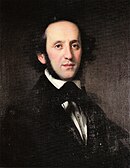 |
| Otto Lindblad | 1809 | 1864 | Swedish | composer |
| Frédéric Chopin | 1810 | 1849 | Polish-French |  |
| Ferenc Erkel | 1810 | 1893 | Hungarian | composer of grand opera |
| Otto Nicolai | 1810 | 1849 | German | opera composer and conductor, best known for The Merry Wives of Windsor |
| Norbert Burgmüller | 1810 | 1836 | German | composer and brother of Friedrich Burgmüller, praised by Robert Schumann |
| Robert Schumann | 1810 | 1856 | German |  |
| Ludwig Schuncke | 1810 | 1834 | German | composer and pianist |
| Ferdinand David | 1810 | 1873 | German | composer and violinist |
| Vinzenz Lachner | 1811 | 1893 | German | composer, brother of Franz Lachner and Ignaz Lachner |
| Franz Liszt | 1811 | 1886 | Hungarian |  |
| Ferdinand Hiller | 1811 | 1885 | German | composer, conductor, writer and music-director, close friend of Felix Mendelssohn. Robert Schumann dedicated his Piano Concerto to him in 1845. |
| Wilhelm Taubert | 1811 | 1891 | German | pianist, composer and conductor whose early works received praise from Felix Mendelssohn |
| Ambroise Thomas | 1811 | 1896 | French | 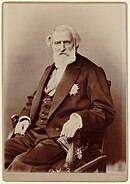 |
| Spyridon Xyndas | 1812 | 1896 | Greek | opera composer and guitarist |
| Sigismond Thalberg | 1812 | 1871 | Austrian | composer and one of the most distinguished pianists of the Romantic era |
| Louis-Antoine Jullien | 1812 | 1860 | French | conductor and composer of light music, king of promenade concerts in England |
| Emilie Mayer | 1812 | 1883 | German |  |
| Friedrich von Flotow | 1812 | 1883 | German |  |
| Alexandre Dubuque | 1812 | 1898 | Russian-French | composer, known for teaching |
| Johann Rufinatscha | 1812 | 1893 | Austrian | composer |
| Alexander Dargomyzhsky | 1813 | 1869 | Russian |  |
| Semen Hulak-Artemovsky | 1813 | 1873 | Ukrainian |  |
| George Alexander Macfarren | 1813 | 1887 | English | 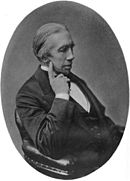 |
| Stephen Heller | 1813 | 1888 | Hungarian | composer, highly affected the late Romantic composers |
| Richard Wagner | 1813 | 1883 | German | 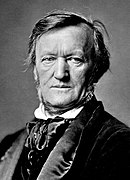 |
| Ernst Haberbier | 1813 | 1869 | German | composer |
| Giuseppe Verdi | 1813 | 1901 | Italian |  |
| Charles-Valentin Alkan | 1813 | 1888 | French | composer and virtuoso pianist |
| Antonios Liveralis | 1814 | 1842 | Greek | opera composer and conductor |
| Giuseppe Lillo | 1814 | 1863 | Italian | composer, best known for his operas among which is worth noting Odda di Bernaver and Caterina Howard |
| Adolf von Henselt | 1814 | 1889 | German | composer and pianist |
| Josephine Lang | 1815 | 1880 | German | composer and pianist |
| Ferdinand Praeger | 1815 | 1891 | German | composer and pianist |
| Robert Volkmann | 1815 | 1883 | German |  |
| Józef Władysław Krogulski | 1815 | 1842 | Polish | composer and pianist |
| William Sterndale Bennett | 1816 | 1875 | English | composer, conductor and editor |
| Charles Dancla | 1817 | 1907 | French | violinist, composer and teacher |
| Émile Prudent | 1817 | 1863 | French | pianist and composer |
| Károly Thern | 1817 | 1886 | Hungarian | composer, conductor and teacher |
| Niels Gade | 1817 | 1890 | Danish | composer, violinist and organist |
| Henry Litolff | 1818 | 1891 | British | pianist, composer and music publisher, best known for his five Concerto Symphoniques |
| Charles Gounod | 1818 | 1893 | French | 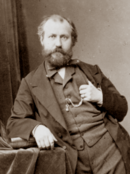 |
| Antonio Bazzini | 1818 | 1897 | Italian | violinist, composer and teacher, best known for The Dance of the Goblins |
| Alexander Dreyschock | 1818 | 1869 | Czech | pianist and composer |
| Jacques Offenbach | 1819 | 1880 | French |  |
| Franz von Suppé | 1819 | 1895 | Austrian |  |
| Stanisław Moniuszko | 1819 | 1872 | Polish | composer, best known as the Father of Polish National Opera |
| Clara Schumann | 1819 | 1896 | German | composer and pianist, wife of Robert Schumann, one of the leading pianists of the Romantic era |
| Vatroslav Lisinski | 1819 | 1854 | Croatian | composer, famous for his first Croatian opera, Love and Malice and his second Croatian opera, Porin |
Middle Romantic (born 1820–1839)
[edit]| Name | Date born | Date died | Nationality | Comments |
|---|---|---|---|---|
| Henri Vieuxtemps | 1820 | 1881 | Belgian |  |
| Giovanni Bottesini | 1821 | 1889 | Italian | conductor, composer and double bass virtuoso |
| Josip Runjanin | 1821 | 1878 | Croatian | composer |
| Emilie Holmberg | 1821 | 1854 | Swedish | composer, concert pianist and organist |
| Joachim Raff | 1822 | 1882 | Swiss-born German | 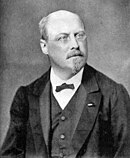 |
| César Franck | 1822 | 1890 | Belgian-born French |  |
| James Lord Pierpont | 1822 | 1893 | American | composer, best known for Jingle Bells |
| Luigi Arditi | 1822 | 1903 | Italian | composer, violinist and conductor |
| Édouard Lalo | 1823 | 1892 | French | 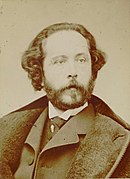 |
| Theodor Kirchner | 1823 | 1903 | German | composer and pianist, he wrote over 1,000 piano pieces |
| Kurmangazy Sagyrbaev | 1823 | 1896 | Kazakhstani | composer |
| Anton Bruckner | 1824 | 1896 | Austrian |  |
| Frederick Ellard | 1824 | 1874 | Australian | composer |
| Bedřich Smetana | 1824 | 1884 | Czech |  |
| Carl Reinecke | 1824 | 1910 | German | 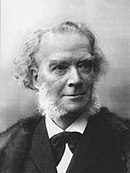 |
| Jean-Baptiste Arban | 1825 | 1889 | French | composer and virtuoso cornetist, wrote the "Grande méthode complète pour cornet à pistons et de saxhorn" now referred to as the "Trumpeter's Bible" |
| Johann Strauss II | 1825 | 1899 | Austrian | 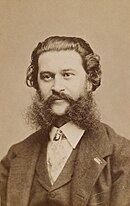 |
| Richard Hol | 1825 | 1904 | Dutch | organ composer |
| Stephen Foster | 1826 | 1864 | American | composer and songwriter known as "the father of American music", best known for "Oh! Susanna", "Camptown Races", "Old Folks at Home", "My Old Kentucky Home", "Jeanie with the Light Brown Hair", "Old Black Joe" and "Beautiful Dreamer" |
| Ivar Hallström | 1826 | 1901 | Swedish | opera composer |
| Ludwig Minkus | 1826 | 1917 | Austrian | composer of ballet music |
| Prince Gustaf, Duke of Uppland | 1827 | 1852 | Swedish | composer and the second son of Oscar I of Sweden |
| Josef Strauss | 1827 | 1870 | Austrian | composer and younger brother of Johann Strauss II |
| Adolphe Blanc | 1828 | 1885 | French | composer of chamber music |
| Adrien Barthe | 1828 | 1898 | French | composer |
| Eduard Rohde | 1828 | 1883 | German | composer and organist |
| Johann Dubez | 1828 | 1891 | Austrian | composer and mandolinist |
| Jacques Blumenthal | 1829 | 1908 | German | composer |
| Patrick Gilmore | 1829 | 1892 | Irish-born American | composer and bandleader, best known for his song, When Johnny Comes Marching Home |
| Louis Moreau Gottschalk | 1829 | 1869 | American | composer, famous for performing his own romantic piano works |
| Anton Rubinstein | 1829 | 1894 | Russian |  |
| Pavlos Carrer | 1829 | 1896 | Greek | composer, famous for composing the first Greek operas |
| Karl Goldmark | 1830 | 1915 | Hungarian |  |
| Hans von Bülow | 1830 | 1894 | German |  |
| Theodor Leschetizky | 1830 | 1915 | Polish | pianist, professor and composer |
| Ivan Larionov | 1830 | 1889 | Russian | composer, writer and folklorist |
| Kornelije Stanković | 1831 | 1865 | Serbian | composer |
| Jan Gerard Palm | 1831 | 1906 | Curaçaoan | composer, best known for his mazurkas, waltzes, danzas, tumbas, fantasies and serenades |
| Célestin Lavigueur | 1831 | 1885 | Canadian | opera composer |
| Hiromori Hayashi | 1831 | 1896 | Japanese |  |
| Joseph Joachim | 1831 | 1907 | Hungarian | composer, violinist, conductor and teacher |
| Eduardo Mezzacapo | 1832 | 1898 | Italian | mandolin virtuoso, composer and teacher, known for Aubade for Mandolin, Violin and Guitar and Tarantella "Napoli" |
| August Söderman | 1832 | 1876 | Swedish | composer, best known for his lieder and choral works |
| Ivan Zajc | 1832 | 1914 | Croatian | composer, conductor, director and teacher, best known for his opera, Nikola Šubić Zrinski and his Croatian patriotic song, U boj, u boj |
| Francis Edward Bache | 1833 | 1858 | English | composer and organist |
| Alexander Borodin | 1833 | 1887 | Russian | chemist and nationalist composer, part of the Russian Five, wrote the opera, Prince Igor |
| Johannes Brahms | 1833 | 1897 | German |  |
| Amilcare Ponchielli | 1834 | 1886 | Italian | 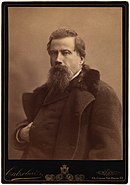 |
| Tekla Bądarzewska-Baranowska | 1834 | 1861 | Polish | composer |
| Julius Reubke | 1834 | 1858 | German | 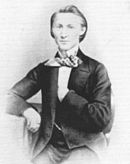 |
| Peter Benoit | 1834 | 1901 | Belgian | composer |
| Giuseppe Branzoli | 1835 | 1909 | Italian | mandolinist, violinist, composer and music historian |
| Felix Draeseke | 1835 | 1913 | German | composer |
| Camille Saint-Saëns | 1835 | 1921 | French | 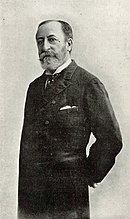 |
| Henryk Wieniawski | 1835 | 1880 | Polish |  |
| Eduard Strauss | 1835 | 1916 | Austrian | composer and younger brother of Johann Strauss II and Josef Strauss |
| César Cui | 1835 | 1918 | Russian |  |
| Davorin Jenko | 1835 | 1914 | Slovenian-born Serbian | composer and conductor |
| Friedrich Baumfelder | 1836 | 1916 | German | piano, choral, and orchestra composer, in his day known for his 'Tirocinium musicae' and today known for his 'Melody in F major' |
| Léo Delibes | 1836 | 1891 | French | composer, one of the first significant ballet composers since the Baroque music, known for Coppélia, Sylvia, and Lakmé |
| Abdu al-Hamuli | 1836 | 1901 | Egyptian | 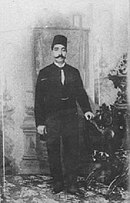 |
| Antônio Carlos Gomes | 1836 | 1896 | Brazilian | opera composer, praised by Franz Liszt and Giuseppe Verdi whose Il Guarany premiered at La Scala in 1870, a first opera ballo for the composer from the New World |
| Bertha Tammelin | 1836 | 1915 | Swedish | composer, concert pianist and opera singer |
| Julius Weissenborn | 1837 | 1888 | German | bassoonist, composer and music teacher, famous for his Practical Bassoon School |
| Tigran Chukhajian | 1837 | 1898 | Turkish-Armenian | composer, conductor, public activist and the founder of the first opera institution in the Ottoman Empire |
| Émile Waldteufel | 1837 | 1915 | French | |
| Mily Balakirev | 1837 | 1910 | Russian |  |
| Gordon Saunders | 1837 | 1912 | English | composer of songs, church music and organ music, professor at the Trinity College of Music |
| Georges Bizet | 1838 | 1875 | French | 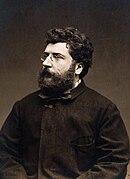 |
| Max Bruch | 1838 | 1920 | German | 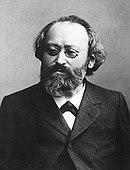 |
| Henri Ghys | 1839 | 1908 | French | pianist, conductor and composer |
| Modest Mussorgsky | 1839 | 1881 | Russian |  |
| Eduard Nápravník | 1839 | 1916 | Czech | 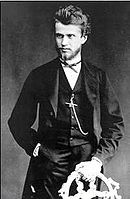 |
| John Knowles Paine | 1839 | 1906 | American | first native-born American composer to acquire international fame for his large-scale orchestral music |
| Josef Rheinberger | 1839 | 1901 | German | composer and organist, born in Liechtenstein, primarily noted for his organ music including 20 sonatas |
Late Romantic (born 1840–1859)
[edit]| Name | Date born | Date died | Nationality | Comments |
|---|---|---|---|---|
| Pyotr Ilyich Tchaikovsky | 1840 | 1893 | Russian |  |
| John Stainer | 1840 | 1901 | English | composer and organist |
| Louis-Albert Bourgault-Ducoudray | 1840 | 1910 | French | composer |
| Johan Svendsen | 1840 | 1911 | Norwegian | composer, conductor and violinist |
| Louis Brassin | 1840 | 1884 | Belgian | pianist, composer and music educator, best known for his piano transcription of the Magic Fire Music from Wagner's Die Walküre |
| Emmanuel Chabrier | 1841 | 1894 | French | 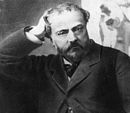 |
| Felip Pedrell | 1841 | 1922 | Spanish | composer of opera, zarzuela and church music who taught and influenced Isaac Albéniz, Enrique Granados and Manuel de Falla |
| Giovanni Sgambati | 1841 | 1914 | Italian | composer, conductor and pianist |
| Antonín Dvořák | 1841 | 1904 | Czech |  |
| Giuseppe Silvestri | 1841 | 1921 | Italian | composer and mandolin virtuoso |
| Arrigo Boito | 1842 | 1918 | Italian | 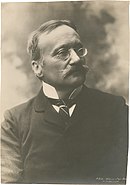 |
| Josef Labor | 1842 | 1924 | Austrian |  |
| Mykola Lysenko | 1842 | 1912 | Ukrainian |  |
| Johann Nepomuk Fuchs | 1842 | 1899 | Austrian | composer, conductor, teacher and editor |
| Jules Massenet | 1842 | 1912 | French | 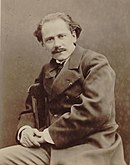 |
| Arthur Sullivan | 1842 | 1900 | English |  |
| Calixa Lavallée | 1842 | 1891 | Canadian | composer, known for the Canadian national anthem, O Canada |
| Émile Bernard | 1843 | 1902 | French | composer and organist, known for his Divertissement For Doubled Wind Quintet |
| Edvard Grieg | 1843 | 1907 | Norwegian |  |
| David Popper | 1843 | 1913 | Czech | composer and virtuoso cellist, known for his 40 etudes, 4 concertos and Hungarian Rhapsody for cello and orchestra |
| Paul Taffanel | 1844 | 1908 | French |  |
| Nikolai Rimsky-Korsakov | 1844 | 1908 | Russian |  |
| Pietro Armanini | 1844 | 1895 | Italian | composer, virtuoso mandolinist and teacher, known for his performances and two dances, La cigale polka pour (The Grasshopper Polka) and L'éventail polka-mazurka (The Range Mazurka) |
| Pablo de Sarasate | 1844 | 1908 | Spanish | virtuoso violinist and composer, best known for Zigeunerweisen, Carmen Fantasy and his showpieces for the violin |
| Charles-Marie Widor | 1844 | 1937 | French | 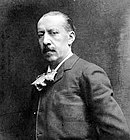 |
| Friedrich Nietzsche | 1844 | 1900 | German | philologist, philosopher, cultural critic, poet and composer |
| Ion Ivanovici | 1845 | 1902 | Romanian | composer, known for his waltz, Waves of the Danube |
| Gabriel Fauré | 1845 | 1924 | French |  |
| Oscar Hammerstein I | 1846 | 1919 | German-born American | opera composer, businessman and impresario |
| Albert Mando | 1846 | 1912 | American | composer, conductor and music educator |
| Ignaz Brüll | 1846 | 1907 | Austrian | composer and pianist, famous for his opera, Das goldene Kreuz |
| Luigi Denza | 1846 | 1922 | Italian | opera composer, composed and played for mandolin and guitar |
| Ferdinando de Cristofaro | 1846 | 1890 | Italian | mandolin virtuoso, pianist, composer and music teacher |
| Zygmunt Noskowski | 1846 | 1909 | Polish | composer, conductor and teacher |
| Robert Fuchs | 1847 | 1927 | Austrian | composer and music teacher |
| Chiquinha Gonzaga | 1847 | 1935 | Brazilian | composer, pianist, and conductor |
| Augusta Holmès | 1847 | 1903 | French | composer of Irish descent |
| Philipp Scharwenka | 1847 | 1917 | German-Polish | composer and music teacher, brother of Xaver Scharwenka |
| Henri Duparc | 1848 | 1933 | French | composer, noted for seventeen melodies |
| Hubert Parry | 1848 | 1918 | English |  |
| Benjamin Godard | 1849 | 1895 | French | composer and violinist |
| Ernesto Köhler | 1849 | 1907 | Italian | flautist and composer, known by flautists for his instructional work, Progress in Flute Playing |
| Calogero Adolfo Bracco | 1850 | 1903 | Italian | mandolinist, violinist, composer and conductor, known for I mandolini a congresso |
| Zdeněk Fibich | 1850 | 1900 | Czech |  |
| Xaver Scharwenka | 1850 | 1924 | German-Polish | composer, pianist and music teacher, brother of Philipp Scharwenka |
| Alexandre Luigini | 1850 | 1906 | French | composer and conductor |
| Max Josef Beer | 1851 | 1908 | Austrian | composer |
| Josif Marinković | 1851 | 1931 | Serbian | composer |
| Vincent d'Indy | 1851 | 1931 | French | 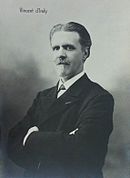 |
| Francisco Tárrega | 1852 | 1909 | Spanish | composer and virtuoso classical guitarist, known as 'the Father of modern classical guitar playing' |
| Hans Huber | 1852 | 1921 | Swiss | composer |
| Charles Villiers Stanford | 1852 | 1924 | Irish | 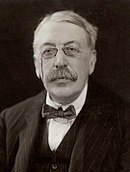 |
| Ciprian Porumbescu | 1853 | 1883 | Romanian | composer |
| Teresa Carreño | 1853 | 1917 | Venezuelan | composer and pianist |
| Arthur Foote | 1853 | 1937 | American |  |
| Engelbert Humperdinck | 1854 | 1921 | German | opera composer, influenced by Richard Wagner, famous for Hänsel und Gretel |
| Leoš Janáček | 1854 | 1928 | Czech | composer, known for his operas Káťa Kabanová and Jenůfa and his orchestral pieces Sinfonietta and Taras Bulba |
| Alfredo Catalani | 1854 | 1893 | Italian |  |
| Moritz Moszkowski | 1854 | 1925 | German | composer and pianist who wrote prolifically for the piano, also composed a piano concerto and a violin concerto |
| John Philip Sousa | 1854 | 1932 | American |  |
| Bernard Zweers | 1854 | 1924 | Dutch | 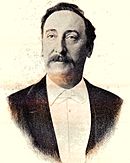 |
| George Whitefield Chadwick | 1854 | 1931 | American | composer |
| Ernest Chausson | 1855 | 1899 | French | 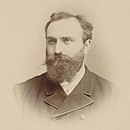 |
| Jean Pietrapertosa | 1855 | 1940 | Italian-French | composer and mandolin virtuoso |
| Julius Röntgen | 1855 | 1932 | German-Dutch | composer, influenced by Johannes Brahms, close friend to Edvard Grieg |
| Anatoly Lyadov | 1855 | 1914 | Russian | 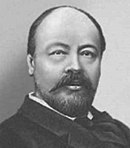 |
| Arnold Mendelssohn | 1855 | 1933 | German | composer and music teacher |
| Stevan Mokranjac | 1856 | 1914 | Serbian | composer |
| Jacob J. Sawyer | 1856 | 1885 | American | composer |
| Giuseppe Martucci | 1856 | 1909 | Italian | composer and music teacher |
| Frank White Meacham | 1856 | 1909 | American | composer and arranger of Tin Pan Alley, best known for his popular march, American Patrol |
| Sergei Taneyev | 1856 | 1915 | Russian | 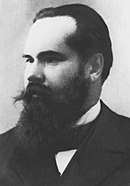 |
| Christian Sinding | 1856 | 1941 | Norwegian | 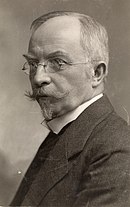 |
| Edward Elgar | 1857 | 1934 | English | 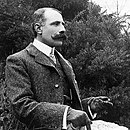 |
| Cécile Chaminade | 1857 | 1944 | French | composer and pianist |
| Ruggero Leoncavallo | 1857 | 1919 | Italian | 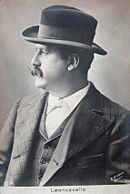 |
| Edwin Eugene Bagley | 1857 | 1922 | American | composer, most famous for composing the march, National Emblem |
| Mathilde Kralik | 1857 | 1944 | Austrian |  |
| Giacomo Puccini | 1858 | 1924 | Italian |  |
| Jenő Hubay | 1858 | 1937 | Hungarian | violinist, composer and music teacher, also known by his German name Eugen Huber |
| Eugène Ysaÿe | 1858 | 1931 | Belgian |  |
| Hans Rott | 1858 | 1884 | Austrian |  |
| Carlo Curti | 1859 | 1922 | Italian |  |
| Mikhail Ippolitov-Ivanov | 1859 | 1935 | Russian |  |
| Victor Herbert | 1859 | 1924 | Irish-born American |  |
| Sergei Lyapunov | 1859 | 1924 | Russian |  |
| Per Lasson | 1859 | 1883 | Norwegian |  |
Post Romantic (born 1860–1899)
[edit]| Name | Date born | Date died | Nationality | Comments |
|---|---|---|---|---|
| Isaac Albéniz | 1860 | 1909 | Spanish |  |
| Valborg Aulin | 1860 | 1928 | Swedish |  |
| Gustave Charpentier | 1860 | 1956 | French | 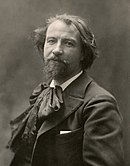 |
| Gustav Mahler | 1860 | 1911 | Austrian |  |
| Edward MacDowell | 1860 | 1908 | American | 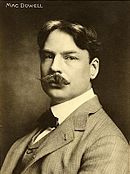 |
| Hugo Wolf | 1860 | 1903 | Austrian | 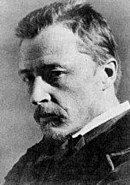 |
| Ignacy Jan Paderewski | 1860 | 1941 | Polish |  |
| Anton Arensky | 1861 | 1906 | Russian |  |
| Spyridon Samaras | 1861 | 1917 | Greek |  |
| Wilhelm Berger | 1861 | 1911 | German |  |
| Georgy Catoire | 1861 | 1926 | Russian | composer |
| Václav Suk | 1861 | 1933 | Czech-born Russian |  |
| Stéphan Elmas | 1862 | 1937 | Armenian |  |
| Claude Debussy | 1862 | 1918 | French | 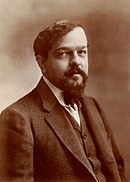 |
| Frederick Delius | 1862 | 1934 | English | 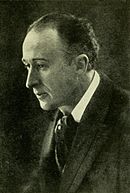 |
| Edward German | 1862 | 1936 | English |  |
| Alberto Williams | 1862 | 1952 | Argentine |  |
| Emil von Sauer | 1862 | 1942 | German |  |
| Pietro Mascagni | 1863 | 1945 | Italian |  |
| Horatio Parker | 1863 | 1919 | American |  |
| Gabriel Pierné | 1863 | 1937 | French |  |
| Ricardo Castro | 1864 | 1907 | Mexican |  |
| Alexander Gretchaninov | 1864 | 1956 | Russian | 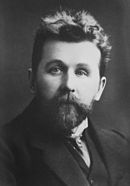 |
| Sakunosuke Koyama | 1864 | 1927 | Japanese |  |
| Alberto Nepomuceno | 1864 | 1920 | Brazilian | 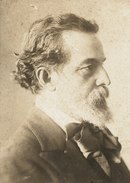 |
| Clarence L. Partee | 1864 | 1915 | American |  |
| Guy Ropartz | 1864 | 1955 | French |  |
| Richard Strauss | 1864 | 1949 | German | 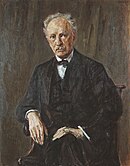 |
| Paul Dukas | 1865 | 1935 | French | 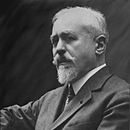 |
| Eduardo di Capua | 1865 | 1917 | Italian |  |
| Herbert J. Ellis | 1865 | 1903 | English |  |
| Paul Gilson | 1865 | 1942 | Belgian |  |
| Alexander Glazunov | 1865 | 1936 | Russian |  |
| Albéric Magnard | 1865 | 1914 | French |  |
| Carl Nielsen | 1865 | 1931 | Danish |  |
| Jean Sibelius | 1865 | 1957 | Finnish |  |
| Vasily Kalinnikov | 1866 | 1901 | Russian |  |
| Tor Aulin | 1866 | 1914 | Swedish |  |
| Ferruccio Busoni | 1866 | 1924 | Italian | 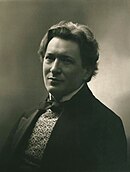 |
| Francesco Cilea | 1866 | 1950 | Italian |  |
| Amanda Aldridge | 1866 | 1956 | British |  |
| Vladimir Rebikov | 1866 | 1920 | Russian |  |
| Erik Satie | 1866 | 1925 | French | 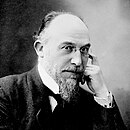 |
| Georg Schumann | 1866 | 1952 | German | 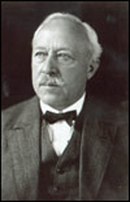 |
| Johann Strauss III | 1866 | 1939 | Austrian |  |
| Learmont Drysdale | 1866 | 1909 | Scottish | composer |
| Samuel Maykapar | 1867 | 1938 | Russian |  |
| Amy Beach | 1867 | 1944 | American | 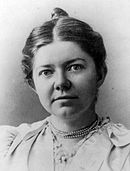 |
| Umberto Giordano | 1867 | 1948 | Italian |  |
| Enrique Granados | 1867 | 1916 | Spanish | 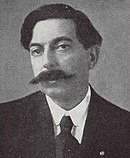 |
| Wilhelm Peterson-Berger | 1867 | 1942 | Swedish | 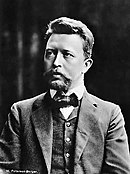 |
| Charles Koechlin | 1867 | 1950 | French |  |
| Scott Joplin | c. 1867/1868 | 1917 | American |  |
| Oskar Merikanto | 1868 | 1924 | Finnish |  |
| Granville Bantock | 1868 | 1946 | British | composer |
| Hermann Bischoff | 1868 | 1936 | German | composer |
| Hamish MacCunn | 1868 | 1916 | Scottish | composer, conductor and teacher, most famous for The Land of the Mountain and the Flood |
| Vittorio Monti | 1868 | 1922 | Italian | composer, violinist and conductor, most famous for Csárdás |
| José Vianna da Motta | 1868 | 1948 | Portuguese | pianist, teacher and composer, most famous for Symphony 'À Pátria', Op. 13 |
| Juventino Rosas | 1868 | 1894 | Mexican |  |
| Jan Brandts Buys | 1868 | 1933 | Dutch-Austrian | composer |
| Tokichi Setoguchi | 1868 | 1941 | Japanese |  |
| Seth Weeks | 1868 | 1953 | American | 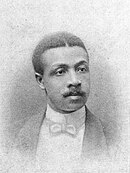 |
| Siegfried Wagner | 1869 | 1930 | German | opera composer, conductor and the son of Richard Wagner |
| Demetrios Lialios | 1869 | 1940 | Greek | composer of chamber music |
| Julius Conus | 1869 | 1942 | Russian | composer and violinist |
| Albert Roussel | 1869 | 1937 | French | 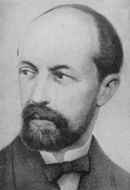 |
| Armas Järnefelt | 1869 | 1958 | Finnish | composer and conductor |
| Harry Lawrence Freeman | 1869 | 1954 | American | opera composer, conductor, impresario and teacher, best known for his African-American opera, Voodoo |
| Alfred Hill | 1869 | 1960 | Australian-New Zealand | composer, conductor and teacher |
| John Nicholas Klohr | 1869 | 1956 | American | composer of band music, most famous for The Billboard March |
| Leopold Godowsky | 1870 | 1938 | Polish | composer, pianist and teacher |
| Zygmunt Stojowski | 1870 | 1946 | Polish | composer and pianist |
| Oscar Straus | 1870 | 1954 | Austrian | 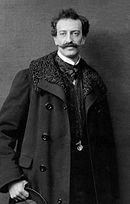 |
| Franz Lehár | 1870 | 1948 | Hungarian | composer, mainly known for his operettas |
| Florent Schmitt | 1870 | 1958 | French | composer |
| Luigi von Kunits | 1870 | 1931 | Serbian-born Austrian | composer and conductor, founder of the Pittsburg and Toronto symphony orchestras |
| Guillaume Lekeu | 1870 | 1894 | Belgian | composer, known for his violin sonata |
| Louis Vierne | 1870 | 1937 | French | 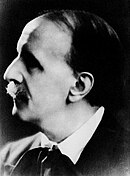 |
| Nobu Kōda | 1870 | 1946 | Japanese | 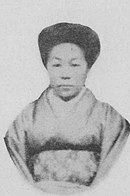 |
| Frederick Converse | 1871 | 1940 | American | composer |
| Alfredo D'Ambrosio | 1871 | 1914 | Italian | violinist and composer |
| Giacomo Balla | 1871 | 1958 | Italian | futurist composer and artist |
| Zacharia Paliashvili | 1871 | 1933 | Georgian |  |
| Henry Kimball Hadley | 1871 | 1937 | American | composer and conductor, known for the opera, Cleopatra's Night |
| Oreste Ravanello | 1871 | 1938 | Italian | composer, known for works for choir and for organ |
| Wilhelm Stenhammar | 1871 | 1927 | Swedish | 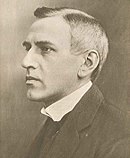 |
| Alexander von Zemlinsky | 1871 | 1942 | Austrian |  |
| Stanislav Binički | 1872 | 1942 | Serbian | composer |
| Hugo Alfvén | 1872 | 1960 | Swedish |  |
| Julius Fučík | 1872 | 1916 | Czech | 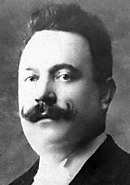 |
| Rubin Goldmark | 1872 | 1936 | American | composer, pianist, educator and nephew of Karl Goldmark |
| Alexander Scriabin | 1872 | 1915 | Russian | 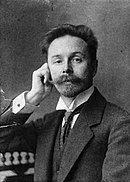 |
| Ralph Vaughan Williams | 1872 | 1958 | English | 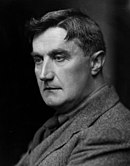 |
| Salvator Léonardi | 1872 | 1938 | Italian | composer, performer and teacher, known for Souvenir de Catania, Souvenir de Napoli, Souvenir de Sicile and Angeli e Demoni |
| Camillo Schumann | 1872 | 1946 | German | composer, younger brother of Georg Schumann; no relation to Robert Schumann |
| William Henry Bell | 1873 | 1946 | English | composer, conductor and lecturer |
| Leo Fall | 1873 | 1925 | Austrian | composer of operettas |
| Pascual Marquina Narro | 1873 | 1948 | Spanish | prolific orchestral and operatic composer |
| Sergei Rachmaninoff | 1873 | 1943 | Russian |  |
| Max Reger | 1873 | 1916 | German | prolific composer, known for his Variations and Fugue on a Theme by Mozart |
| Reynaldo Hahn | 1874 | 1947 | Venezuelan | composer, known for his strikingly beautiful and unabashedly tonal melodies |
| Gustav Holst | 1874 | 1934 | English |  |
| Charles Ives | 1874 | 1954 | American | composer, member of the American Five, best known for The Unanswered Question and his Concord Sonata |
| Arnold Schoenberg | 1874 | 1951 | Austrian-American |  |
| Josef Suk | 1874 | 1935 | Czech | 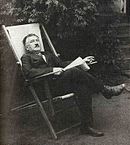 |
| Franz Schmidt | 1874 | 1939 | Austrian | composer, influenced by Anton Bruckner and Johannes Brahms |
| Eugénie-Victorine-Jeanne Alombert | 1874 | 1964 | French | composer and pianist |
| Reinhold Glière | 1875 | 1956 | Russian |  |
| Julián Carrillo | 1875 | 1965 | Mexican | composer, conductor, violinist and music theorist |
| Fritz Kreisler | 1875 | 1962 | Austrian | composer and virtuoso violinist, known for his sweet sound, composed short showpieces for the violin |
| Richard Wetz | 1875 | 1935 | German | composer, influenced by Anton Bruckner |
| Maurice Ravel | 1875 | 1937 | French |  |
| Franco Alfano | 1875 | 1954 | Italian | composer and pianist |
| Albert Ketèlbey | 1875 | 1959 | English | composer, conductor and pianist |
| Samuel Coleridge-Taylor | 1875 | 1912 | English | composer, known for his trilogy of cantatas, The Song of Hiawatha |
| Alexander Koshetz | 1875 | 1944 | Ukrainian | 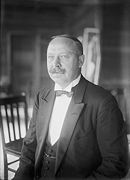 |
| Mikalojus Konstantinas Čiurlionis | 1875 | 1911 | Lithuanian | painter and composer |
| Henriette Renié | 1875 | 1956 | French | harpist and composer |
| Josef Hofmann | 1876 | 1957 | Polish-American | 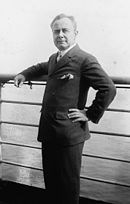 |
| Edgar Bara | 1876 | 1962 | French | mandolinist and composer, conducted mandolin orchestra |
| John Alden Carpenter | 1876 | 1951 | American | composer |
| Manuel de Falla | 1876 | 1946 | Spanish |  |
| Flor Alpaerts | 1876 | 1954 | Belgian | composer, notable students include the two composers, Denise Tolkowsky and Ernest Schuyten |
| Mieczysław Karłowicz | 1876 | 1909 | Polish |  |
| Filippo Tommaso Marinetti | 1876 | 1944 | Italian |  |
| Fermo Dante Marchetti | 1876 | 1940 | Italian |  |
| Ludolf Nielsen | 1876 | 1939 | Danish |  |
| Carl Ruggles | 1876 | 1971 | American | composer, painter and the member of the American Five, whose representative Romantic-period work is the lieder Ich fühle deinen Odem |
| Ermanno Wolf-Ferrari | 1876 | 1948 | Italian |  |
| Nakao Tozan | 1876 | 1956 | Japanese |  |
| Petar Krstić | 1877 | 1957 | Serbian | composer and conductor |
| Antonio Russolo | 1877 | 1942 | Italian | futurist composer and brother of Luigi Russolo |
| Ernst von Dohnányi | 1877 | 1960 | Hungarian |  |
| Elisabeth Kuyper | 1877 | 1953 | Dutch |  |
| Paul Ladmirault | 1877 | 1944 | French |  |
| Mykola Leontovych | 1877 | 1921 | Ukrainian | 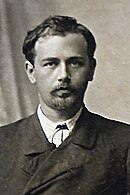 |
| Sergei Bortkiewicz | 1877 | 1952 | Russian | 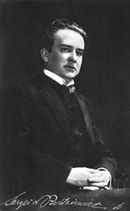 |
| Isidor Bajić | 1878 | 1915 | Serbian |  |
| Gabriel Dupont | 1878 | 1914 | French | 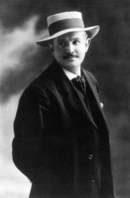 |
| Joseph Holbrooke | 1878 | 1958 | English |  |
| Franz Schreker | 1878 | 1934 | Austrian |  |
| Teiichi Okano | 1878 | 1941 | Japanese |  |
| Frank Bridge | 1879 | 1941 | English |  |
| Viggo Brodersen | 1879 | 1965 | Danish |  |
| Adolf Wiklund | 1879 | 1950 | Swedish |  |
| Joseph Canteloube | 1879 | 1957 | French |  |
| Hamilton Harty | 1879 | 1941 | Irish |  |
| John Ireland | 1879 | 1962 | English | composer, whose Piano Concerto is representative |
| Carmela Mackenna | 1879 | 1962 | Chilean |  |
| Alma Mahler | 1879 | 1964 | Austrian |  |
| Otto Olsson | 1879 | 1964 | Swedish | composer |
| Ottorino Respighi | 1879 | 1936 | Italian | composer, known for his three symphonic poems, Fountains of Rome, Pines of Rome, and Roman Festivals |
| Rudolf Sieczyński | 1879 | 1952 | Austrian | 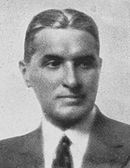 |
| Cyril Scott | 1879 | 1970 | English | composer, writer and poet |
| Rentarō Taki | 1879 | 1903 | Japanese | 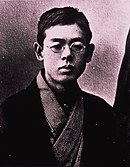 |
| Nikolai Medtner | 1880 | 1951 | Russian | 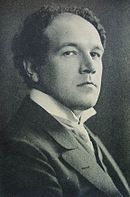 |
| Clarence Cameron White | 1880 | 1960 | American | neoromantic composer and concert violinist |
| Emilios Riadis | 1880 | 1935 | Greek | composer, famous for his song cycles |
| Béla Bartók | 1881 | 1945 | Hungarian |  |
| Kenneth J. Alford | 1881 | 1945 | English | composer of marches for band, most famous for Colonel Bogey March |
| Igor Stravinsky | 1882 | 1971 | Russian |  |
| Maximilian Steinberg | 1883 | 1946 | Russian | 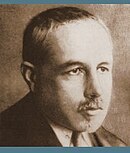 |
| Arnold Bax | 1883 | 1953 | English |  |
| Manolis Kalomiris | 1883 | 1962 | Greek |  |
| Enrique Soro | 1884 | 1954 | Chilean |  |
| Edwin York Bowen | 1884 | 1961 | English |  |
| Charles Tomlinson Griffes | 1884 | 1920 | American |  |
| Alfonso Leng | 1884 | 1974 | Chilean |  |
| Marios Varvoglis | 1885 | 1967 | Greek |  |
| Dimitrios Levidis | 1885 | 1951 | Greek |  |
| Nagayo Motoori | 1885 | 1945 | Japanese |  |
| Pedro Humberto Allende | 1885 | 1957 | Chilean |  |
| Kōsaku Yamada | 1886 | 1965 | Japanese | 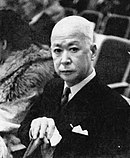 |
| Kurt Atterberg | 1887 | 1974 | Swedish |  |
| Carlos Isamitt | 1887 | 1974 | Chilean |  |
| Nadia Boulanger | 1887 | 1979 | French | 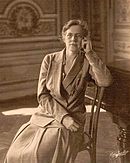 |
| Max Steiner | 1888 | 1971 | Austrian-born American | composer and conductor who emigrated to America and became one of Hollywood's greatest musical composers |
| Philip Greeley Clapp | 1888 | 1954 | American | educator, conductor, pianist and composer of classical music |
| Sverre Jordan | 1889 | 1972 | Norwegian | 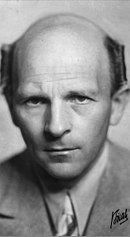 |
| Morishige Takei | 1890 | 1949 | Japanese |  |
| Sergei Prokofiev | 1891 | 1953 | Russian |  |
| Darius Milhaud | 1892 | 1974 | French |  |
| Ferde Grofé | 1892 | 1972 | American |  |
| Sayed Darwish | 1892 | 1923 | Egyptian |  |
| Lili Boulanger | 1893 | 1918 | French |  |
| Rued Langgaard | 1893 | 1952 | Danish |  |
| Tamezō Narita | 1893 | 1945 | Japanese |  |
| Michio Miyagi | 1894 | 1956 | Japanese | 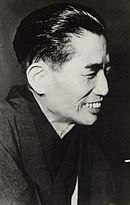 |
| William Grant Still | 1895 | 1978 | American |  |
| Carl Orff | 1895 | 1982 | German |  |
| Eva Jessye | 1895 | 1992 | American |  |
| Leo Ornstein | c. 1895 | 2002 | Ukrainian-American |  |
| Virgil Thomson | 1896 | 1989 | American |  |
| Henry Cowell | 1897 | 1965 | American | 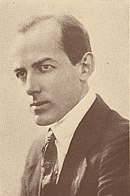 |
| Erich Wolfgang Korngold | 1897 | 1957 | Moravian-born American |  |
| George Gershwin | 1898 | 1937 | American |  |
| Mischa Levitzki | 1898 | 1941 | American | 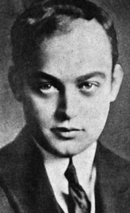 |
Timeline
[edit]

References
[edit]Notes
Sources
- Classical Net, Timeline of Major Composers 1600–Present (PDF), retrieved 6 May 2009 from Classical Net – Composers and Their Works – Timelines
Further reading
[edit]- Classical Composers Database: Composers timeline (1800–1900). Retrieved 5 July 2006
- Machlis, Joseph and Forney, Kristine. The Enjoyment of Music: Seventh Edition, W. W. Norton & Company, 1995, ISBN 0-393-96643-7
- Moss, Charles K. Claude Debussy and Impressionism at the Wayback Machine (archived 9 February 2008). Retrieved 17 January 2009
- Sadie, Julie Anne and Rhian Samuel. The Norton/Grove Dictionary of Women Composers, W. W. Norton & Company, 1995, ISBN 0-333-51598-6
